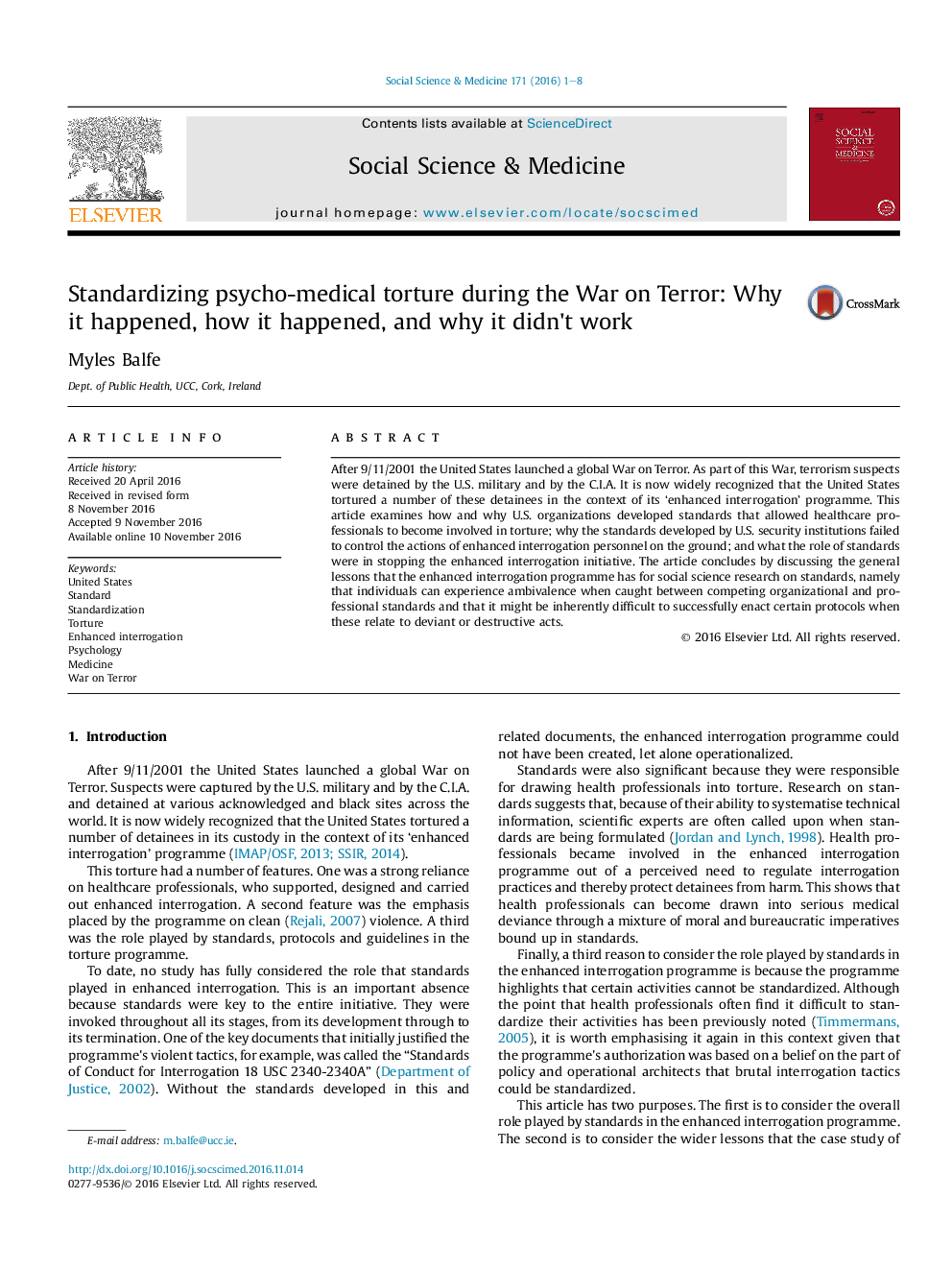| کد مقاله | کد نشریه | سال انتشار | مقاله انگلیسی | نسخه تمام متن |
|---|---|---|---|---|
| 5046833 | 1475998 | 2016 | 8 صفحه PDF | دانلود رایگان |
- Standards played key functions in the enhanced interrogation, or torture, programme.
- Health professionals caught between competing standards can experience ambivalence.
- Certain standards cannot be easily contravened because of their hegemonic nature.
- It may be impossible to implement certain standards due to their destructive nature.
After 9/11/2001 the United States launched a global War on Terror. As part of this War, terrorism suspects were detained by the U.S. military and by the C.I.A. It is now widely recognized that the United States tortured a number of these detainees in the context of its 'enhanced interrogation' programme. This article examines how and why U.S. organizations developed standards that allowed healthcare professionals to become involved in torture; why the standards developed by U.S. security institutions failed to control the actions of enhanced interrogation personnel on the ground; and what the role of standards were in stopping the enhanced interrogation initiative. The article concludes by discussing the general lessons that the enhanced interrogation programme has for social science research on standards, namely that individuals can experience ambivalence when caught between competing organizational and professional standards and that it might be inherently difficult to successfully enact certain protocols when these relate to deviant or destructive acts.
Journal: Social Science & Medicine - Volume 171, December 2016, Pages 1-8
